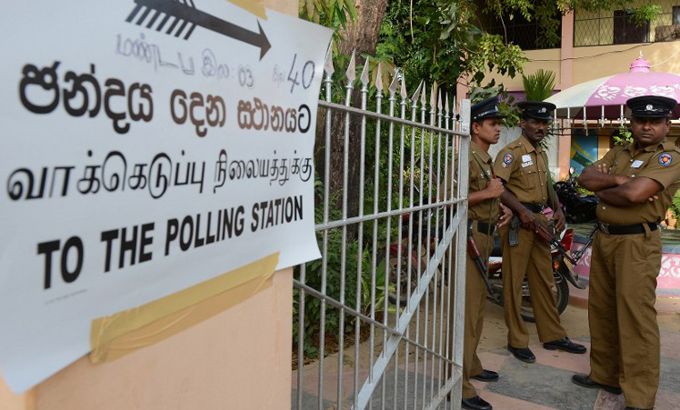Vote count begins in Sri Lanka’s Tamil north
Voters cast ballots in polls to form first functioning government in Tamil-majority province after decades of civil war.

Balloting has closed on time after ethnic Tamil voters in Sri Lanka’s war-ravaged north went to the polls to form their first functioning provincial government.
Saturday’s elections were seen by the United Nations and the world community as a crucial test of reconciliation between Tamils and the majority ethnic Sinhalese, who control the government and military.
Tamils hope the polls were the first step towards wider regional autonomy after decades of peaceful struggle and a bloody civil war that ended when government forces in 2009 crushed the Tamil Tigers rebels who fought to create an independent state.
The government information department said in a statement that voters in the Tamil-majority Northern Province “have contributed towards participatory democracy with an overall 68 percent turnout at council election”.
The Tamil National Alliance (TNA), considered a political proxy to the Tamil rebels during the conflict, was the favourite to win the election and has fielded a former Supreme Court Justice, CV Wigneswaran, as its chief candidate.
Results are expected by Sunday.
‘Smear campaign’
On the cusp of voting, armed police guarded polling booths and while there was no sign of troops in and around Jaffna city, the capital of the province 400km north of Colombo, a different picture was seen elsewhere in remote areas, according to TNA.
“In most rural areas, the military is asking voters not to cast their ballots,” TNA candidate Dharmalingam Sithadthan told AFP news agency. “There is also a big smear campaign against the TNA.”
He said he visited more than 10 polling booths and noticed military intelligence officers asking voters not to vote for the “house,” the symbol of the TNA . “They are doing this in a threatening manner,” Sithadthan said.
The reports could not be immediately independently confirmed.
The election was promoted by the UN Human Rights Council as a step towards ethnic reconciliation in Sri Lanka after nearly four decades of fighting that killed up to 100,000 people.
At least 80,000 people were killed and northern cities, including many in Jaffna, were reduced to rubble.